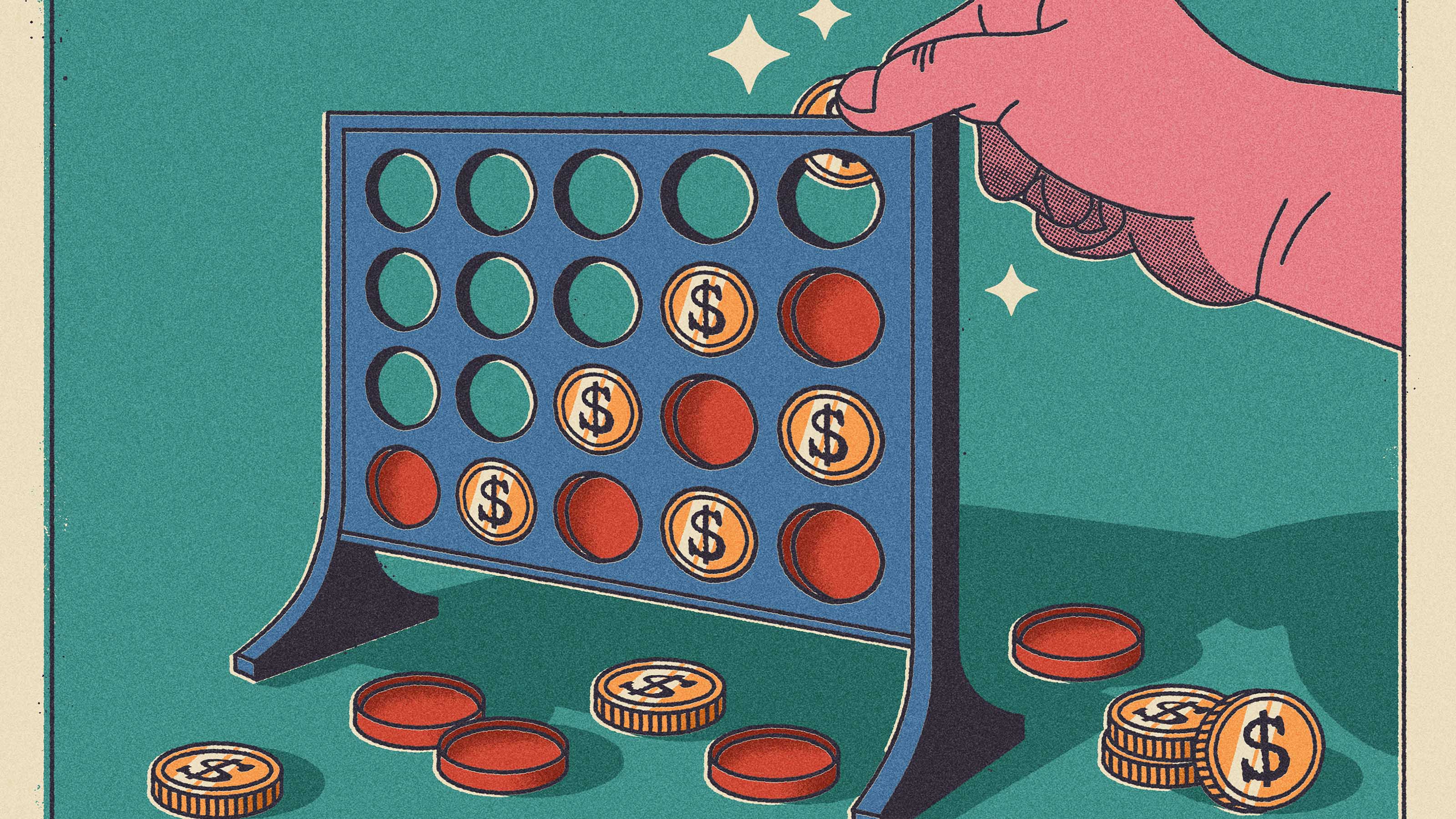Why I’m Investing in Copa Airlines
The Panamanian company has grown impressively, but the stock is still attractively priced.

Profit and prosper with the best of Kiplinger's advice on investing, taxes, retirement, personal finance and much more. Delivered daily. Enter your email in the box and click Sign Me Up.
You are now subscribed
Your newsletter sign-up was successful
Want to add more newsletters?

Delivered daily
Kiplinger Today
Profit and prosper with the best of Kiplinger's advice on investing, taxes, retirement, personal finance and much more delivered daily. Smart money moves start here.

Sent five days a week
Kiplinger A Step Ahead
Get practical help to make better financial decisions in your everyday life, from spending to savings on top deals.

Delivered daily
Kiplinger Closing Bell
Get today's biggest financial and investing headlines delivered to your inbox every day the U.S. stock market is open.

Sent twice a week
Kiplinger Adviser Intel
Financial pros across the country share best practices and fresh tactics to preserve and grow your wealth.

Delivered weekly
Kiplinger Tax Tips
Trim your federal and state tax bills with practical tax-planning and tax-cutting strategies.

Sent twice a week
Kiplinger Retirement Tips
Your twice-a-week guide to planning and enjoying a financially secure and richly rewarding retirement

Sent bimonthly.
Kiplinger Adviser Angle
Insights for advisers, wealth managers and other financial professionals.

Sent twice a week
Kiplinger Investing Weekly
Your twice-a-week roundup of promising stocks, funds, companies and industries you should consider, ones you should avoid, and why.

Sent weekly for six weeks
Kiplinger Invest for Retirement
Your step-by-step six-part series on how to invest for retirement, from devising a successful strategy to exactly which investments to choose.
My Practical Investing portfolio has included about $15,000 in cash since last spring, when I sold a few stocks. I’ve wanted to put the cash to work but have held back because of the market’s stunning run-up in 2013. But when stock prices started to plunge because of investor anxiety over the government shutdown and the possibility that the U.S. could default on its debt, I started hunting for bargains.
I realize that the bulk of the civilized world loves to buy stocks when prices are rising. But because of my contrary nature, I get nervous when other investors are confident — and I get giddy when everyone else is running for cover. Bottom line: I prefer to shop when stocks are on sale.
The selloff stemming from Congress’s temporary insanity was just what the stock doctor ordered, so I pulled out my wish list of companies, many of which have been recommended by Kiplinger in the past. I settled on an airline called Copa Holdings (symbol CPA).
From just $107.88 $24.99 for Kiplinger Personal Finance
Become a smarter, better informed investor. Subscribe from just $107.88 $24.99, plus get up to 4 Special Issues

Sign up for Kiplinger’s Free Newsletters
Profit and prosper with the best of expert advice on investing, taxes, retirement, personal finance and more - straight to your e-mail.
Profit and prosper with the best of expert advice - straight to your e-mail.
Copa was one of our picks for The World’s 10 Best Stocks. Much of Copa’s success stems from its location in Panama City, the main crossroads between North and South America. Because Panama recognizes that many of the passengers who land at Tocumen International Airport are just passing through, it doesn’t require them to go through customs or bother with passports or visas unless they leave the airport. That makes Tocumen a favorite hub for travelers in a hurry, and it has helped Copa grow and keep its planes full.
Some key measures of airline performance illustrate Copa’s success. In the first nine months of 2013, the airline reported an 18% gain in revenue passenger miles (filled seats times miles traveled) and a 16% increase in available seat miles (number of seats times miles flown). Copa is planning a major expansion, with five planes on order and options to buy 14 more. Analysts expect earnings to grow by 21% in 2014.
I was delighted to find that, despite this impressive growth, the stock sold for just 12 times estimated 2014 profits. Copa was cheaper than two other well-run carriers, Spirit Airlines (SAVE) and Southwest Airlines (LUV). Plus, Copa offered a dividend yield of 1.9%; Southwest yielded just 1%, and Spirit, which has made me a bundle, pays no dividend. So on October 2, I bought 100 shares of Copa for about $138 apiece.
Quick Gain
Thanks to the growing popularity of airline stocks, I already have a tidy profit on Copa. By November 1, a month after my purchase, Copa was up to $151.
Aside from that one move, I have left the portfolio alone. But like the market, it’s soaring in value. Some of that, of course, is just the rising tide lifting all boats. Some, however, stems from positive developments at the companies in which I’ve invested.
Corning (GLW) has been one of my portfolio’s consistent laggards. But it jumped 14% a day after it announced that it had inked a deal with South Korean electronics giant Samsung that will likely boost its revenues by $2 billion annually.
Microsoft (MSFT), another stock in the portfolio, got a lift when it reported that its earnings were better than the miserable results that analysts had expected. The upbeat report also lifted my shares in Intel (INTC), which has been desperately trying to diversify its product line so its fortunes won’t forever be linked to those of its partner in the “Wintel” personal computer alliance.
My Practical Investing portfolio, which a month ago was up 36% from its inception, is now up 37%. I’m not complaining, but I have to admit that this relentless stock market rally is making me a little nervous.
Profit and prosper with the best of Kiplinger's advice on investing, taxes, retirement, personal finance and much more. Delivered daily. Enter your email in the box and click Sign Me Up.

-
 Nasdaq Leads a Rocky Risk-On Rally: Stock Market Today
Nasdaq Leads a Rocky Risk-On Rally: Stock Market TodayAnother worrying bout of late-session weakness couldn't take down the main equity indexes on Wednesday.
-
 Quiz: Do You Know How to Avoid the "Medigap Trap?"
Quiz: Do You Know How to Avoid the "Medigap Trap?"Quiz Test your basic knowledge of the "Medigap Trap" in our quick quiz.
-
 5 Top Tax-Efficient Mutual Funds for Smarter Investing
5 Top Tax-Efficient Mutual Funds for Smarter InvestingMutual funds are many things, but "tax-friendly" usually isn't one of them. These are the exceptions.
-
 The Most Tax-Friendly States for Investing in 2025 (Hint: There Are Two)
The Most Tax-Friendly States for Investing in 2025 (Hint: There Are Two)State Taxes Living in one of these places could lower your 2025 investment taxes — especially if you invest in real estate.
-
 The Final Countdown for Retirees with Investment Income
The Final Countdown for Retirees with Investment IncomeRetirement Tax Don’t assume Social Security withholding is enough. Some retirement income may require a quarterly estimated tax payment by the September 15 deadline.
-
 How to Beef Up Your Portfolio Against Inflation
How to Beef Up Your Portfolio Against Inflationinvesting These sectors are better positioned to benefit from rising prices.
-
 Taxable or Tax-Deferred Account: How to Pick
Taxable or Tax-Deferred Account: How to PickInvesting for Income Use our guide to decide which assets belong in a taxable account and which go into a tax-advantaged account.
-
 Smart Investing in a Bear Market
Smart Investing in a Bear Marketinvesting Here's how to make the most of today’s dicey market.
-
 How to Open a Stock Market Account
How to Open a Stock Market Accountinvesting Investing can be fun, but you need a brokerage account to do it. Fortunately, it’s easy to get started.
-
 The Right Dividend Stock Fund for You
The Right Dividend Stock Fund for YouBecoming an Investor Dividend stock strategies come in many different flavors. Here's what to look for.
-
 Alternative Investments for the Rest of Us
Alternative Investments for the Rest of UsFinancial Planning These portfolio diversifiers aren't just for the wealthy.